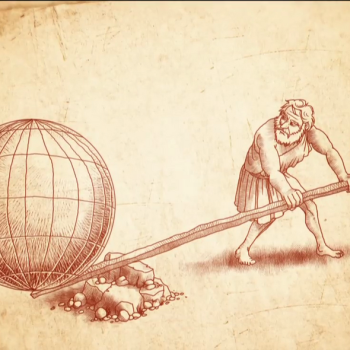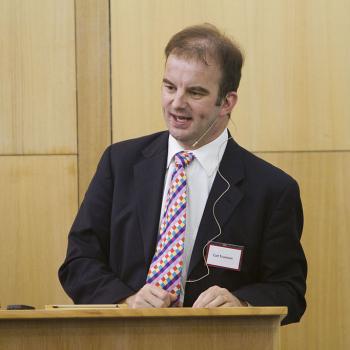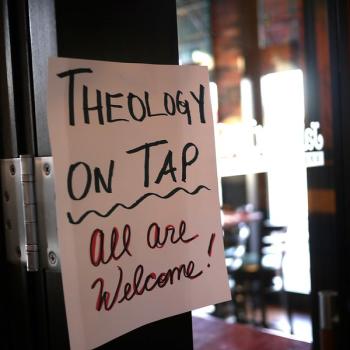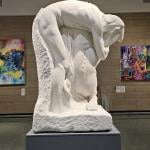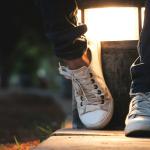Scientists have been studying the mechanics, physiology, and history of crucifixion. They have learned that it was more horrible than people had assumed. Details and a link to some of the findings after the jump.From Science Replays the Crucifixion, NBC News:
Biblical archaeologist Jonathan Reed says he has undergone something of a conversion. Maybe that’s what staging a crucifixion does to you.
For “Quest for Truth: The Crucifixion,” a TV documentary premiering on Easter Sunday [in 2005] on the National Geographic Channel, Reed conducted an experiment with a volunteer tied to an actual cross. Reed even took a turn on it himself.
No one was actually hurt. The researchers stopped short of pounding nails into feet, and monitored their volunteer victims closely for any signs of stress. But Reed, a religion professor at the University of La Verne in California, said spending time on the cross was nevertheless a “dark” experience that gave him a new appreciation for Roman cruelty.
It also changed his mind on some of the central historical questions surrounding the practice. Going into the experiment, Reed fully believed that crucifixion victims couldn’t have been nailed by the palms of the hands, and that they had to have died of asphyxiation. But now he thinks the Romans could well have targeted the palms to maximize their victims’ agony, and that death was more likely due to heart failure, brought on by shock, pain and exposure.
“I tried to have an open mind and let the experiment guide me to a conclusion,” he told MSNBC.com.
In addition to tracing Reed’s experiment, National Geographic’s “Quest for Truth” (9 p.m. ET/PT Sunday) reviews other archaeological and forensic studies that have been sparked by the biblical accounts of Jesus’ crucifixion on Good Friday.
[Keep reading. . .]
HT: Ned Moerbe



